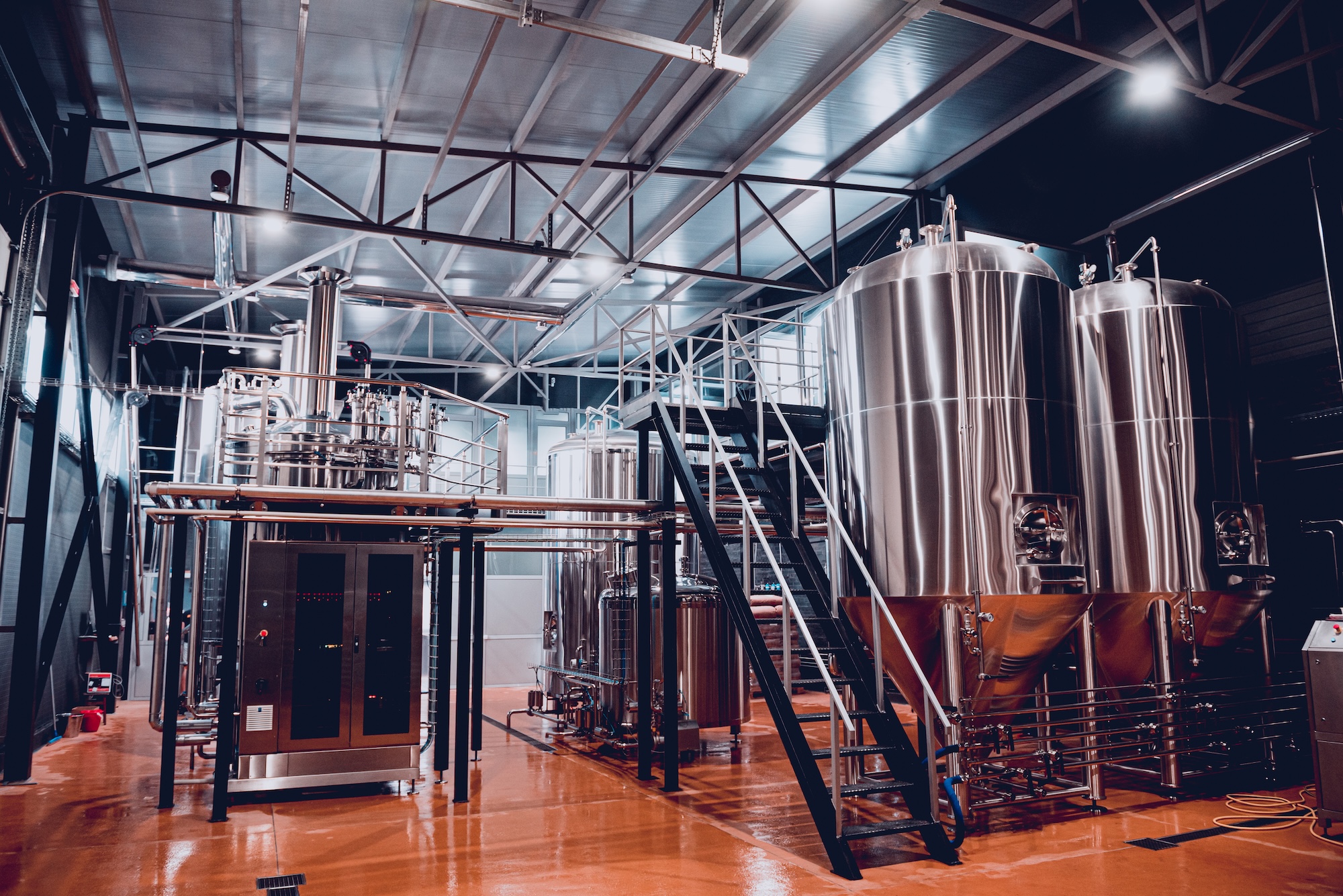Key points of the article
- Food-grade lubricants are essential to ensure quality, safety, and continuity in all stages of beer production.
- H1 food-grade solutions protect equipment from wear and contamination, maintaining consistent operational reliability.
- Every production stage, from malting to packaging, requires specific lubricants for pumps, gearboxes, bearings, fillers, and cappers.
- The use of food and beverage lubricants reduces maintenance costs, increases equipment lifespan, and improves energy efficiency.
- Mascherpa supports breweries with technical consulting and certified solutions to optimize production processes and ensure maximum safety.
Beer production is a complex process requiring reliable equipment, operational continuity, and food safety. From malting to packaging, every stage involves moving machinery (pumps, bearings, gearboxes, fillers) that require constant and safe lubrication. In this context, food-grade lubricants are indispensable to ensure product quality, equipment protection, and compliance with regulations.
Thanks to our experience in the food and beverage sector, at Mascherpa we support industrial and craft breweries in selecting H1 food-grade lubricants, specifically designed to reduce contamination risks and improve equipment performance.
The Importance of Food-Grade Lubricants in Brewing
Beer goes through numerous production stages, from malting to fermentation, to filling and packaging, and each involves mechanical components subject to stress. The use of certified H1 beverage lubricants ensures that, even in case of accidental contact with the product, there are no risks to consumer safety.
These lubricants offer:
- Stability at variable temperatures, typical of fermentation and pasteurization processes.
- Water and corrosion resistance, essential in a context of frequent washing.
- Wear protection and reduction of downtime.

Production Stages and the most Suitable Lubricants
Malting and Brewery
In the malting stage and the early part of the brewing process, pumps, gearboxes, and bearings are involved, exposed to harsh working conditions and humidity. Here, H1 food-grade greases and oils such as PURITY™ FG2 Grease or PURITY™ FG EP Gear Fluid are used, capable of withstanding mechanical shocks and humid environments without compromising wort quality. The use of hydraulic oils like PURITY™ FG AW Hydraulic Fluid ensures stability and operational continuity.
Fermentation
During alcoholic fermentation, mechanical and hydraulic separators are central elements for process stability. The choice of H1 synthetic lubricants ensures resistance to oxidation and contamination. In this critical phase, where the transformation of sugars into alcohol occurs, the use of H1 certified oils significantly reduces the risk of accidental contamination, meeting the strictest food safety standards.
Fillers and Cappers
Filling and capping lines operate at high speed and require high reliability. Automatic rotary fillers need H1 multipurpose greases and synthetic oils to prevent premature wear and lubricant loss. Even the can seaming heads and bottle cappers require specific products, such as PURITY™ FG Seamer-E Fluid, ensuring proper sealing without compromising the product. The precision of these machines cannot do without certified lubricants, capable of operating in accidental contact with the beverage.
Packaging and Palletizing
In the packaging, labeling, and handling stages, brewery lubricants must offer wear resistance and reliability even on equipment subject to heavy loads and continuous cycles. In these areas, even with minimal risk of product contact, lubricants must ensure long life and reduce machine downtime. The use of chain oils and greases for gearboxes and bearings allows maintaining high efficiency in palletizing and transport lines.
The Advantages of Lubricants for Breweries
The use of food and beverage lubricants brings tangible benefits to beer producers:
- Food safety: compliance with NSF H1 standards and reduction of contamination risks.
- Operational reliability: less component wear and more efficient scheduled maintenance.
- Energy efficiency: reduced friction and optimized consumption.
- Investment protection: longer equipment lifespan and reduced production downtime costs.
An additional advantage of H1 food-grade lubricants is their resistance to the frequent washing and sanitizing cycles typical of breweries, an aspect that reduces maintenance impact and increases the hygienic safety of the plant.
Mascherpa Solutions for Beer Production
Thanks to collaboration with leading brands like Petro-Canada Lubricants and our direct experience in the food & beverage sectors, we provide breweries with a complete range of food-grade lubricants for every stage of the process:
- H1 greases for bearings, gears, and seaming heads.
- Certified oils for pumps and hydraulic systems.
- High-performance chain oils and synthetic fluids for transport lines and fillers.
- H1 food-grade lubricants specific for separators, cappers, and high-speed fillers.
Each product is designed to meet the efficiency, safety, and reliability needs that characterize the brewing sector. The PURITY™ FG range is developed to ensure that, even in challenging operating conditions, equipment remains protected and the product safe.
Why Choosing the Right Lubricants Makes a Difference
Beer production requires rigorous attention not only to raw materials but also to the equipment and technologies used. Brewery lubricants are a strategic element to ensure food safety, operational continuity, and final product quality.
At Mascherpa, we support professionals in the food and beverage sector with dedicated solutions, technical support, and personalized consulting. Contact us to explore the best applications of food-grade lubricants in your beer production and discover how to optimize your processes with reliable and certified solutions.



